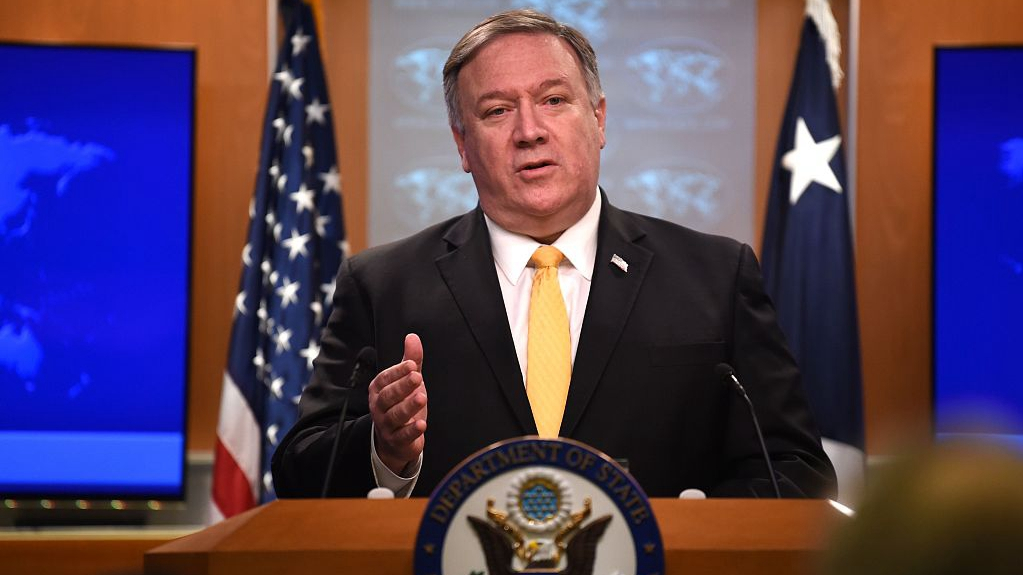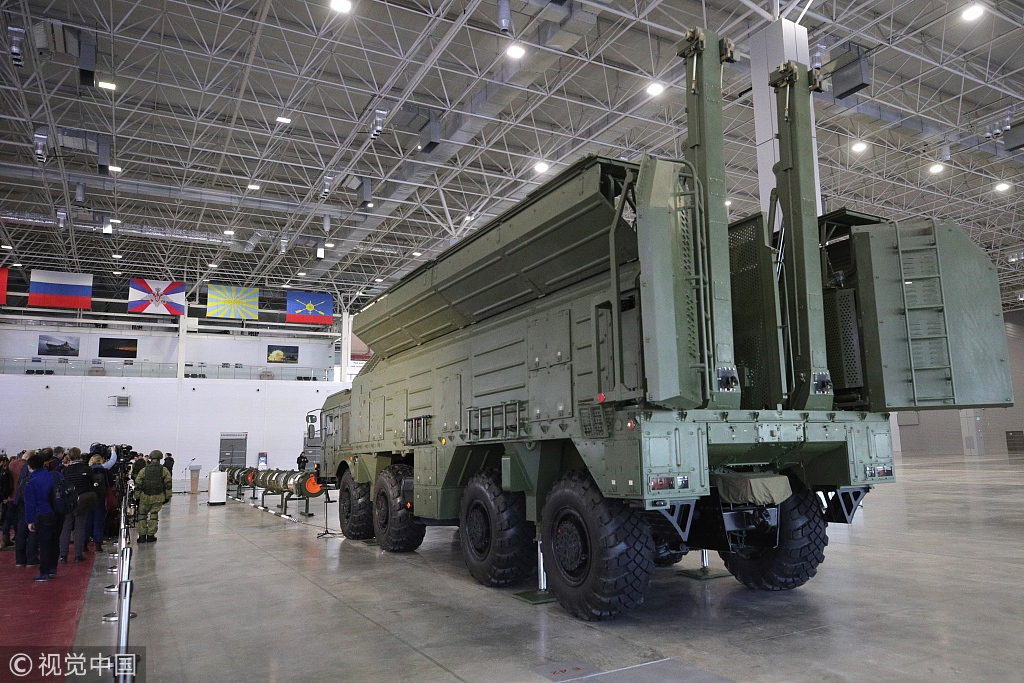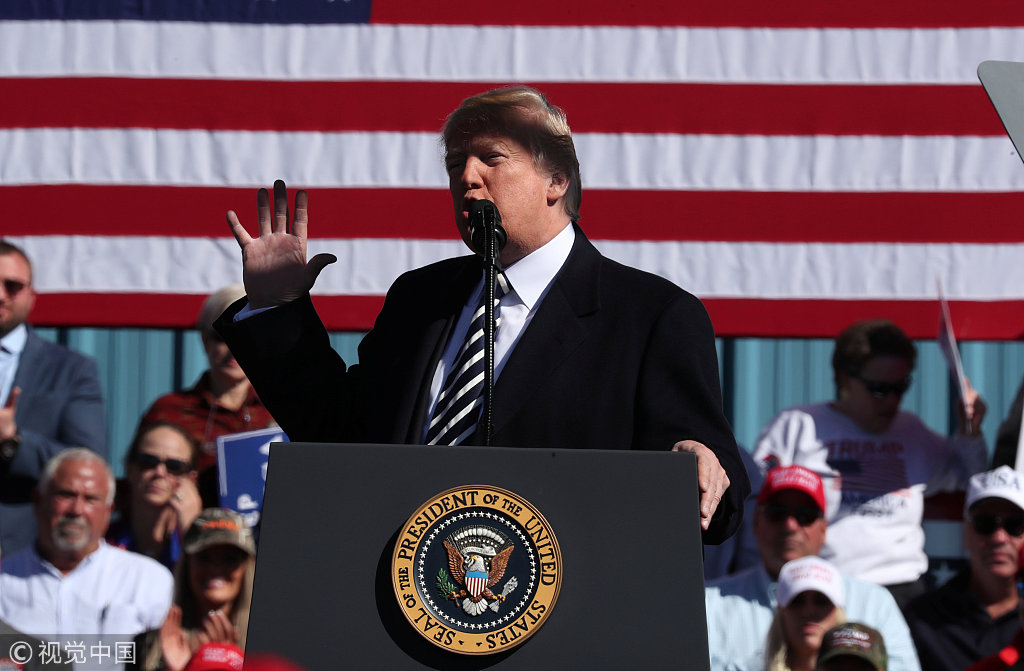
Analysis
18:40, 02-Feb-2019
As Russia, the U.S. suspend INF, what will happen to global arms control?
Updated
09:40, 03-Feb-2019
Xu Sicong

Russian President Vladimir Putin said Moscow is halting its participation in the Intermediate-Range Nuclear Forces (INF) treaty in a “mirror response.” Putin announced that Russia will develop missiles previously forbidden under the terms of the INF.
This comes after the U.S. suspended its obligations under the INF and started the 180-day withdrawal process, marking yet another U.S. withdrawal from a landmark treaty.
The U.S. claims that Russia violated the treaty by deploying the 9M729 missile system. Russia has denied the allegation, insisting that the missile's range does not go beyond 500 kilometers, the lower threshold stipulated by the INF. The U.S. has not been able to substantiate its claim so far.

An Iskander-M guided missile system demonstrated along with the 9M729 and the 9Ì728 missile systems in Kubinka, Moscow Region, Russia, January 23, 2019./ VCG Photo
An Iskander-M guided missile system demonstrated along with the 9M729 and the 9Ì728 missile systems in Kubinka, Moscow Region, Russia, January 23, 2019./ VCG Photo
How will this impact global arms control?
Teng Jianqun, director of American studies at the China Institute for International Studies, believes that the INF treaty has been an important pillar of stability among the major powers.
Signed between the U.S. and the former Soviet Union in 1987, the INF treaty was aimed at eliminating the two countries' conventional and nuclear ground-based ballistic and cruise missiles within ranges of 500 and 5,000 km.
These missiles, if stationed in Europe by the U.S., could easily strike the former Soviet Union. If stationed in the USSR, they could strike anywhere in Europe. The missiles posed grave security threats to both the Soviet Union and America's European allies.
The elimination of such missiles, totaling about 2,700 in four years after the treaty came into force, provided security assurance to the two countries. The treaty also at that time put to an end a tense arms race.
Teng Jianqun suggested that in response to the U.S. pullout, Russia may develop some new land-based missile system. Based on his observations, President Putin has attached great importance to developing Russia's nuclear capability. However, this does not equal to a future arms race as Teng believes a full-on arms race is rather impossible in today's world.
What are the wider intentions of the U.S. withdrawal?
Zhang Junshe, the senior captain at China's Naval Research Institute, thinks that the U.S. withdrawal is meant to unsettle both Russia and China, with the U.S. seeking absolute security in the military sphere. The view was echoed by Li Jie, a Chinese military expert based in Beijing who noted, “The U.S. already has an abundance of other weapons they can deploy, such as its sea-based medium-range missiles and its bombers. The weapons prohibited by the INF are not a must.”
“However, they still want to make sure that they match other countries in terms of what kinds of weapons they possess, and maintain its dominance in the sphere,” Li said.

U.S. President Donald Trump speaks during a campaign rally at Elko Regional Airport in Elko, Nevada, U.S., October 20, 2018./ VCG Photo
U.S. President Donald Trump speaks during a campaign rally at Elko Regional Airport in Elko, Nevada, U.S., October 20, 2018./ VCG Photo
China was mentioned alongside Russia when Trump announced the potential withdrawal last year, with many believing China is the real target. China along with other countries, including Pakistan and India, are not bound by the INF treaty and possess ground-based inter-mediate range missiles.
Many military experts hold the view that even though China has developed those missiles, they are only for self-defense purposes and would not pose a threat to any country.
Li Jie also said that the U.S. move is consistent with the overall pattern of the country's dealing with China, which involves containment in all areas, including the economy, technology, and military.
Zhang Junshe explained, “China's missiles and nuclear weapons are much lower in number than those of the U.S. and Russia. Our national defense policy is essentially defensive and it has not changed. We will not make a preemptive move, but we also need these weapons to make sure we can protect ourselves.”
(Wang Jingyi also contributed to this article)
(Cover photo: U.S. Secretary of State Mike Pompeo announced that the U.S. will withdraw from the INF treaty at a press briefing in Washington DC, the U.S., February 1, 2019. /VCG Photo)
(If you want to contribute and have specific expertise, please contact us at opinions@cgtn.com.)

SITEMAP
Copyright © 2018 CGTN. Beijing ICP prepared NO.16065310-3
Copyright © 2018 CGTN. Beijing ICP prepared NO.16065310-3